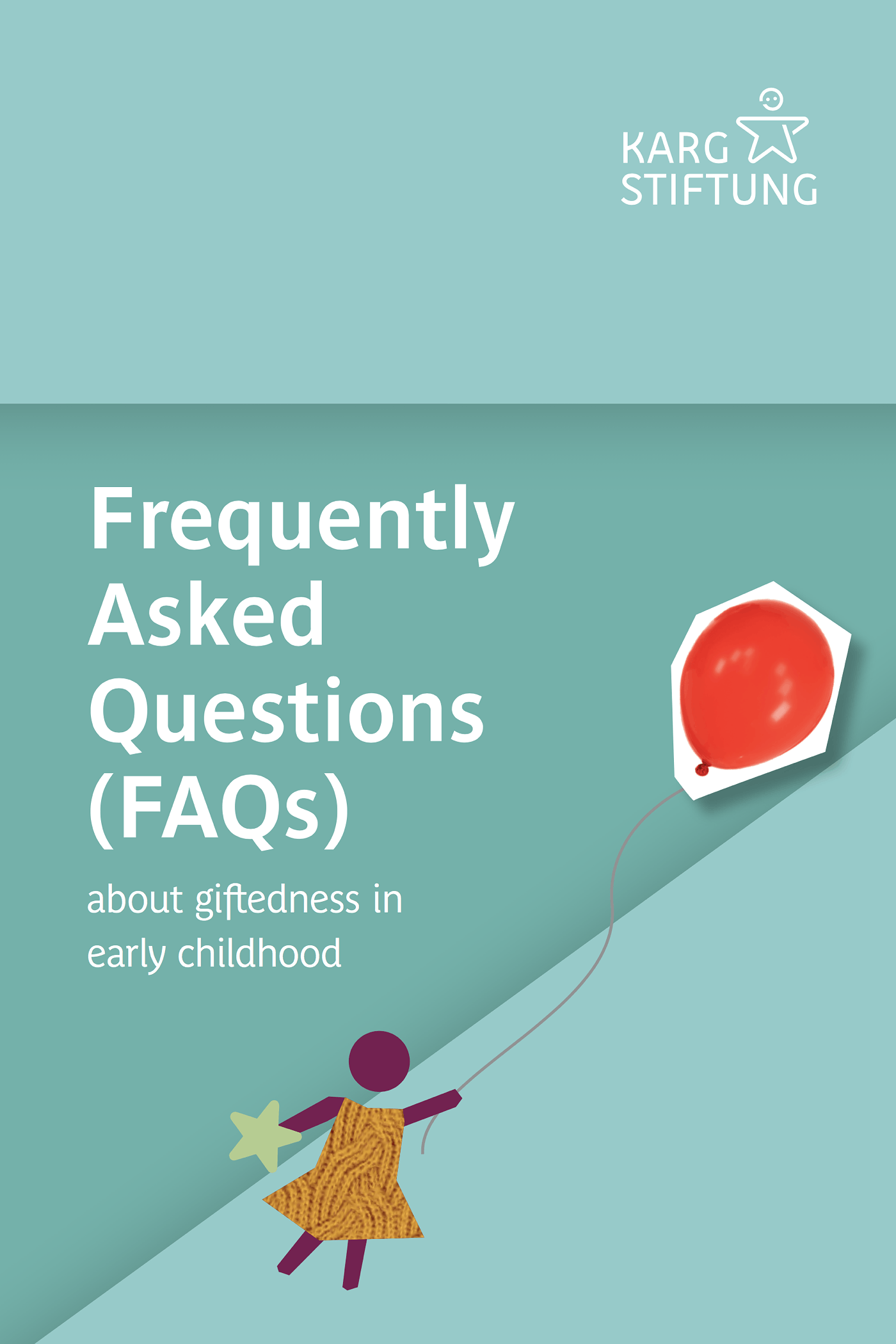Frequently Asked Questions (FAQs) about giftedness in early childhood
What aspects should be considered for supporting the social integration of high ability children into the Kita group environment?
The majority of preschool-age children with high cognitive ability are very well integrated into their social network and peer groups, and they make friends just like the other children. Gifted children are often equipped with special social skills (e.g., conflict mediation skills or the ability to defend their interests to educators), which make them popular partners during playtime. They are also often valued for their imaginative and original ideas for play.
Mixed-age Kita groups are particularly advantageous for children with high cognitive ability. These provide them with the opportunity to socialize with older children who may have more similar ideas for play or interests than their same-age peers.
There can be many reasons why a child does not seem to be well integrated into the Kita group, actively withdraws, or is often alone. Among the possible causes could be that the child’s interests and needs are not being adequately addressed in the daily routine and activities of the Kita. Another reason may be conflicts and frequent misunderstandings with other children or recent or long-lasting family problems. If the condition is persistent and the child is visibly distressed, both the parents and the Kita team should take actions to help the child regain a sense of well-being. It may be necessary to seek the advice of other qualified professionals for this purpose. In some cases, changing to a different early childhood education center may be necessary.

